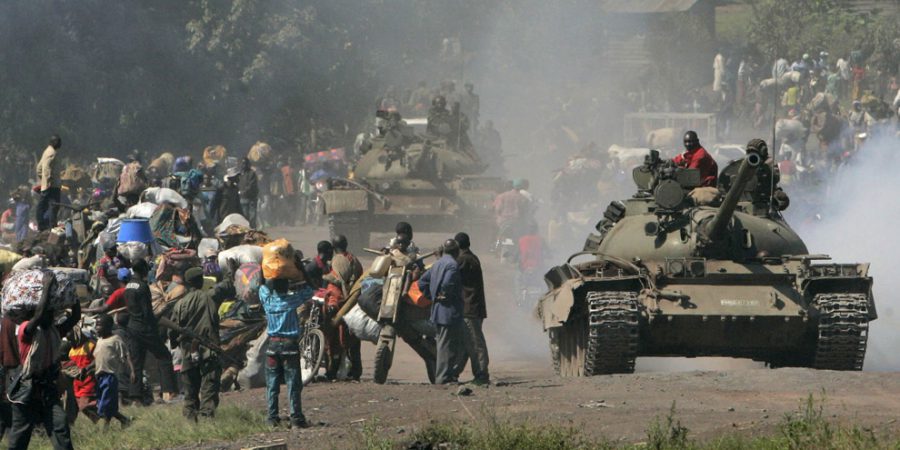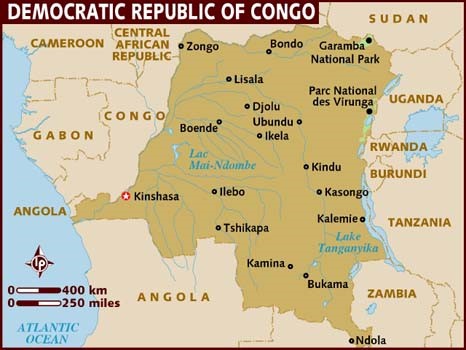Refugees of DRC
March 10, 2018 | Expert Insights

The United Nations has repeatedly stated that the Democratic Republic of Congo is undergoing a humanitarian crisis. The region is plagued by internal strife, lawlessness, and violence. A number of militant groups are prevalent in the country. Numbers released by the UNHCR show that the DRC faces a refugee crisis currently threatening to spill over into other countries.
Background
The region that is now the Democratic Republic of the Congo was first settled about 80,000 years ago. Bantu migration arrived in the region from Nigeria in the 7th century AD. For millennia, the DRC was part of the ancient Kingdom of Congo. Conflict and violence has played a major role in the existence of the DRC. After an uprising by the Congolese people, Belgium surrendered to the independence of Congo in 1960. However, Congo was left unstable because tribal leaders had more power than the central government.
The First Congo War, which occurred between 1996 and 1997, was a foreign invasion of Zaire led by Rwanda that replaced President Mobutu Sésé Seko with the rebel leader Laurent-Désiré Kabila. The Second Congo War began in August 1998 after the Rwandan genocide of 1994. The war officially ended in July 2003.
The nation is home to immense economic resources. This “Resource curse” has partly fuelled the violence further as malicious players have tried to get their hands on the nation’s riches. Fighting was fuelled by the country's vast mineral wealth, with all sides taking advantage of the anarchy to plunder natural resources. There is a strong presence of militia as well, and violence is stoked by ethnic divisions. A large UN peacekeeping force has been established in the East of the nation in order to keep the militia under control.
Joseph Kabila Kabange has been President of the Democratic Republic of the Congo since January 2001. According to the Constitution of the Democratic Republic of the Congo, President Kabila should not be allowed to serve more than two terms. On 19 September 2016, massive protests called for him to step down. A number of reports have emerged this year of the country spiralling back into anarchy. Kabila’s authority is fading and armed conflict is on the rise once more. However, he has refused to step down.

Analysis
Since December 2017, the Democratic Republic of Congo has seen an upsurge in refugees and violence.
The International Organisation for Migration (IOM) has issued an appeal titled the “DR Congo Humanitarian Crisis.” The agency notes a dramatic increase in gender-based and armed violence since the end of Kabila’s term in 2016, particularly in regions such as Kasai and Tanganyika, and North and South-Kivu. “As a result, an estimated 4.1 million individuals are currently displaced - the highest number of any country on the African continent,” the agency stated in its appeal, released in December last year.
Jean-Philippe Chauzy, Chief of Mission of IOM in the DRC said, “Some funding has come in but not nearly enough to meet the critical needs of millions in the DRC.”
The UN has reported 2,200 people displaced from homes in the Beni Territory of North-Kivu in the first week of February alone. In other regions such as Ituri, there has been a resurgence of inter-ethnic violence. Refugees are either being sheltered in UN camps, or fleeing to neighbouring countries such as Uganda. By February 14th, 34,000 Congolese had fled to Uganda this year, according to the UNHCR. As of October 2017, 600,000 refugees had fled from the DRC to 11 other African countries.
On Friday, the UN’s World Food Programme stated that over 2 million children in the country are at risk of death by starvation. 300,000 children in the Kasai regions alone are at risk of near fatal malnutrition.
"We have a great responsibility in the DRC ... Now is the time to stay the course," UN Spokesperson Jens Laerke said.
Assessment
Our assessment is that the Democratic Republic of Congo is facing a humanitarian crisis. Violence and volatility in the DRC has potential to spread across borders to Rwanda, Uganda, Angola, South Sudan, and the Central African Republic. The DRC is dependent on international aid. Cuts to the United Nations and peacekeepers budgets will be detrimental to the ability to implement peace in the region.
Read more: Future of Congo’s democracy








Comments